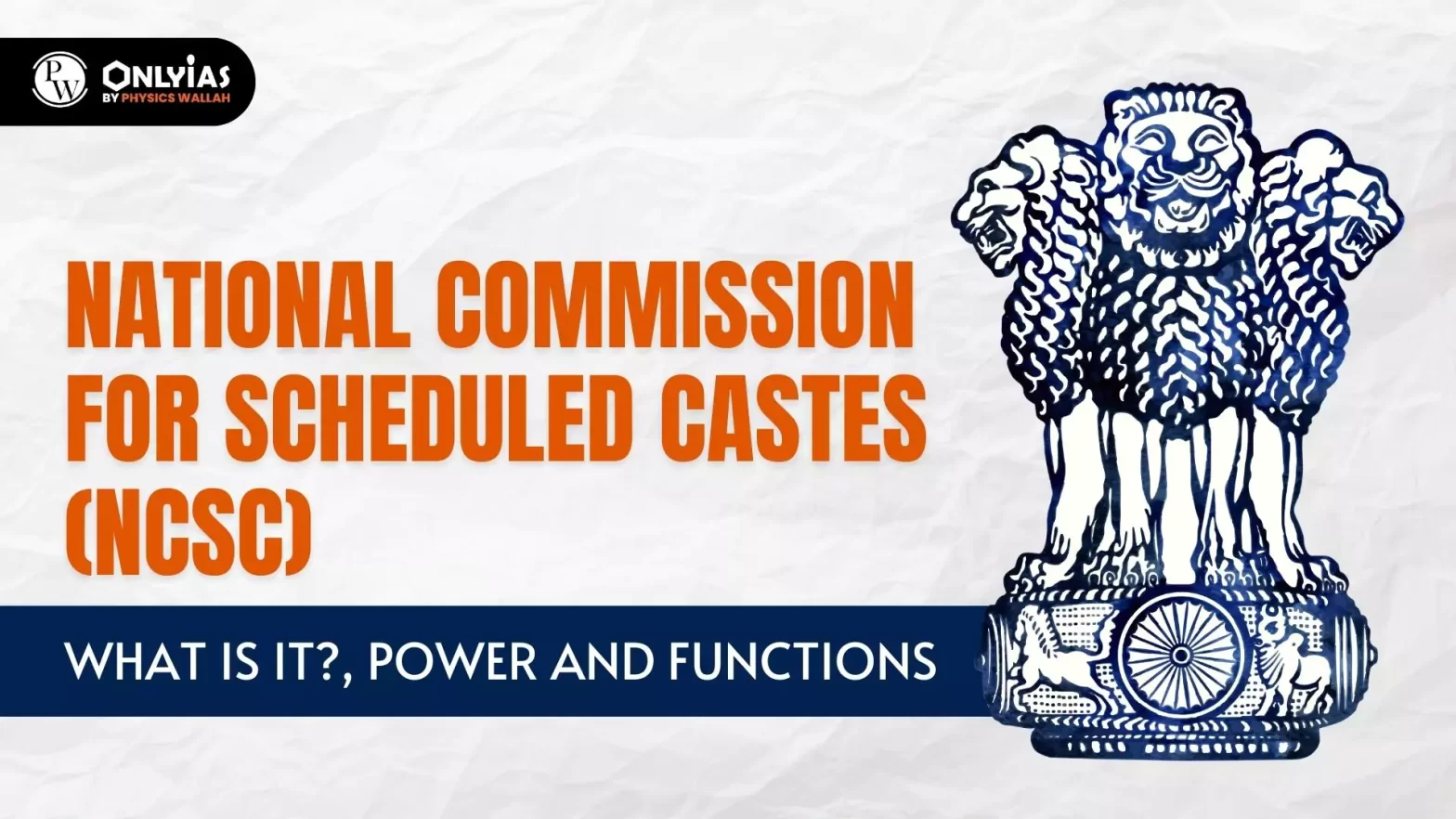Discover the National Commission for Scheduled Castes (NCSC). Understand its functions, powers, and contributions to social justice.

The National Commission for Scheduled Castes (NCSC) is a constitutional body set up under Article 338 of the Indian constitution.
Also Read About National Commission for Scheduled Tribes (NCST)
Also Read About National Commission for Backward Classes (NCBC)
| Must Read | |
| NCERT Notes For UPSC | UPSC Daily Current Affairs |
| UPSC Blogs | UPSC Daily Editorials |
| Daily Current Affairs Quiz | Daily Main Answer Writing |
| UPSC Mains Previous Year Papers | UPSC Test Series 2024 |
The National Commission for Scheduled Castes (NCSC) is a constitutional body set up under Article 338 of the Indian constitution, which aims to provide safeguards against the exploitation of Scheduled Castes and to promote and protect their social, educational, economic, and cultural interests.
The President of India appoints the members of the National Commission for Scheduled Castes (NCSC) by warrant under his hand and seal.
The NCSC works under the jurisdiction of the Union Ministry of Social Justice and Empowerment.
The commission, which consists of a Chairperson, a Vice-Chairperson, and 3 other members, are appointed by the President by warrant under his hand and seal.
NCSC has the responsibility to investigate & monitor matters relating to safeguards provided for SCs at both centre and state levels. The Commission presents an annual report to the President regarding the working of safeguards for SCs.

<div class="new-fform">
</div>